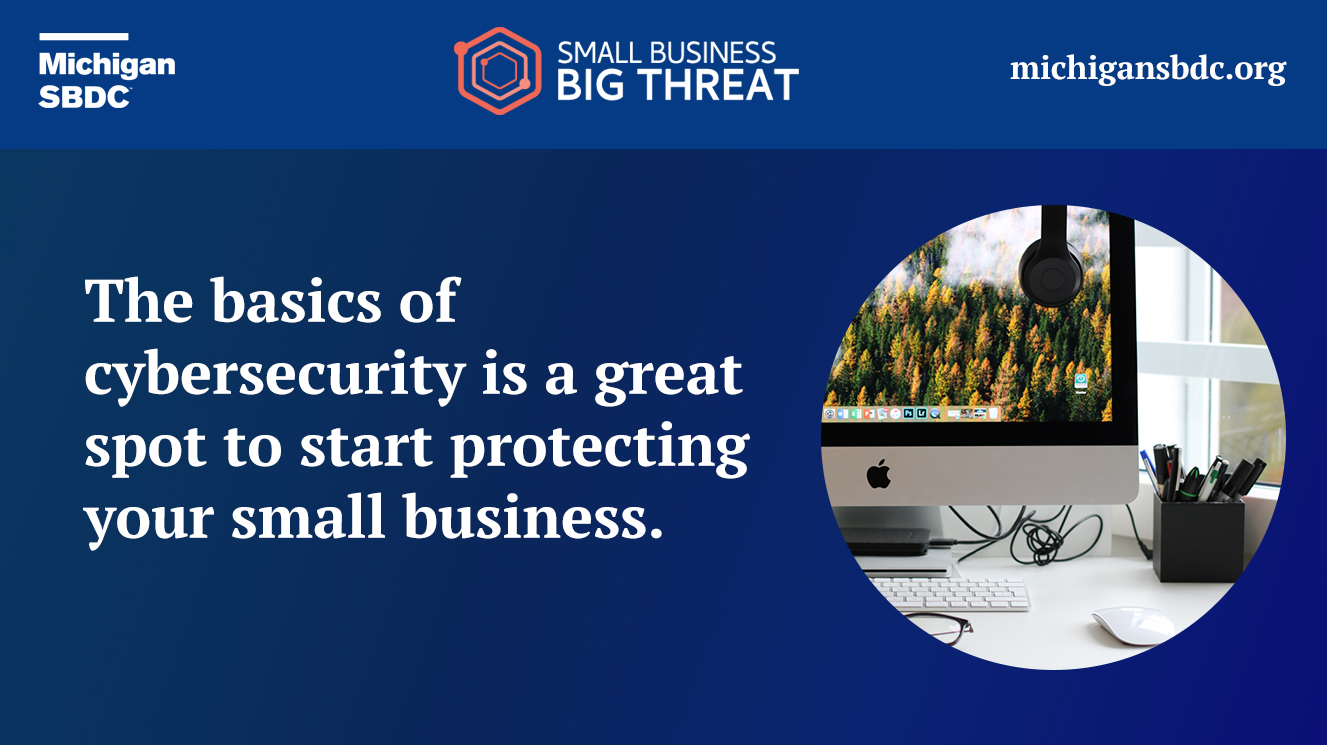 Welcome to Cybersecurity Awareness Month 2023, where we will focus on getting back to the basics of cybersecurity. Why back to the basics? Well, the basics of cybersecurity is a great spot to start protecting your small business. This is because the basics can go a long way in protecting your accounts and data. To learn more about Cybersecurity Awareness Month check out the National Cybersecurity Alliance.
Welcome to Cybersecurity Awareness Month 2023, where we will focus on getting back to the basics of cybersecurity. Why back to the basics? Well, the basics of cybersecurity is a great spot to start protecting your small business. This is because the basics can go a long way in protecting your accounts and data. To learn more about Cybersecurity Awareness Month check out the National Cybersecurity Alliance.
Why the basics
One of the goals of cybersecurity is to make it more difficult for a cybercriminal to access your accounts and data. Applying even the basic protections of cybersecurity can make it a little bit harder. This is bad for them, but good for you and your small business. Cybersecurity is oftentimes complex which can make it difficult to even know where to start. So I say start with the basics.
User authentication
Preventing unauthorized access to your accounts is one of the most important things you can do. This can be done by using complex passwords, never reusing your passwords, and by minimizing password sharing.
Complex passwords contain uppercase and lowercase letters, numbers, and also special characters. These passwords are also longer in length, with 16 characters or more.
It is difficult never reusing a password or never sharing passwords, but this is where password managers can be used. Password managers can create complex passwords for every account you use, allowing you to not reuse them. If you do find yourself needing to share a password, password managers allow you to share your passwords without actually exposing your password.
Another important tool is multifactor authentication. This tool will require an additional form of authentication to access your accounts. It is highly recommended to add this to all accounts you can, especially your email, financial, and any service admin accounts. Multifactor authentication is usually in the form of a push notification on your smartphone, or a 6 digit passcode texted to you, but can come in different methods.
Antivirus and endpoint protection
One of the most popular cybersecurity solutions is antivirus, it is also one of the oldest methods of protecting your computers. A newer, more robust solution is endpoint protection. Endpoint protection solutions typically utilize either a built in antivirus or a 3rd party antivirus as part of its protection features.
Some of the most prominently used malware is malware that is several years old or older, so having an up to date antivirus, will protect against these already known threats. For the unknown threats, having an endpoint protection solution will help reduce the risk of successful malware attacks against your computers and devices.
Update your stuff
As we have written about before, updates play a critical role in protecting your data and accounts. Updates are typically free to do, will fix many security issues, and oftentimes even provide new features. The security fixes alone make updates worth it though.
Backup your data
Lastly, if you do fall victim to a successful cyberattack, it is important to have backups of your data. This way if your data is impacted, you can restore it and get back to running your business sooner. It is important to have a backup schedule, to have a copy either offsite or in the cloud, and to test your backups. A proper backup solution will also have version control so if any of your backups are compromised, not all of them will be.
For more information on getting back to the basics of cybersecurity and protecting your small business, check out Small Business, Big Threat!